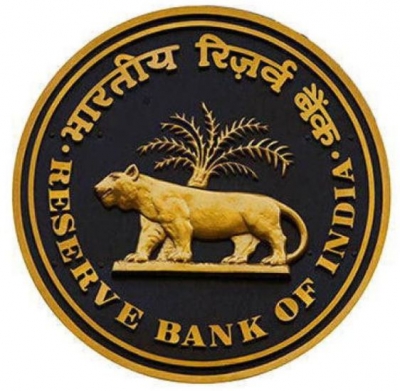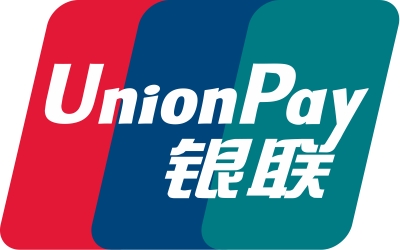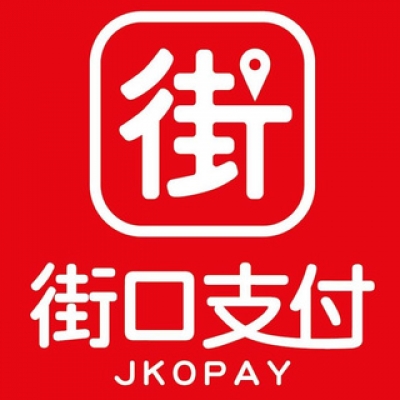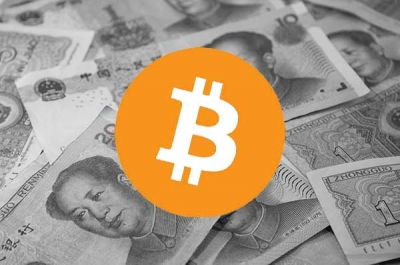With the launch of its cryptocurrency Libra, Facebook is diving headfirst into digital banking. The U.S. social-media giant can draw on its massive global network of 2.3 billion users as it forays into finance. Yet Facebook will not be introducing Libra to China, which has the world's largest number of internet users. China blocked Facebook a decade ago and has moved to cripple crypto to control systemic financial risk and discourage capital flight. If Libra is a success, being excluded from it could have major ramifications for China's fintech development. At the very least, Beijing's own fintech system would be further isolated from the rest of the world.
Hong Kong banking giant HSBC can no longer rest on its laurels: The virtual banks are coming. With its deep local roots and wealthy customer base, HSBC has long been the dominant retail bank in the city. With the arrival of internet-only banks backed by the likes of tech giants such as Alibaba and Tencent, HSBC faces serious native digital competition for the first time.
Indonesia's P2P lending sector heats up
KoinWorks, Indonesia's largest P2P lending platform, has raised US$16.5 million in its Series B funding round, signaling strong interest for alternative lending sources in Southeast Asia's largest economy. Established in 2016, KoinWorks caters to the underbanked and unbanked alike in Indonesia, whose scant credit profiles do not sit well with traditional lenders.
The government of Indian Prime Minister Narendra Modi is not known as a friend of the crypto community. With his recent reelection, virtual currency's future in India, the world's second most populous country and its soon-to-be No. 3 consumer market after the U.S. and China, looks uncertain at best. At worst, India could flat out crypto and criminalize its possession and use.
The Vietnamese mobile wallet Vimo and point-of-sale provider mPOS are merging to form a new entity called NextPay, which will seek to raise US$30 million to expand domestically and elsewhere in Southeast Asia. NextPay's objective is to combine online and offline solutions into one with Vimo as the online channel and mPOS as the offline one.
With an eye on going public, Singapore's ride-hailing giant Grab needs to show profitability, or failing that, strong potential to be in the black soon. Serving as a high tech taxi or food delivery service no longer looks like it will be enough for investors. Instead, Grab wants to be a go-to digital bank. If Singapore regulators grant Grab a virtual-banking license, the company will be poised to test out its fintech hypothesis in its home market.
Indian fintech giant Paytm is reportedly in talks to acquire the Mumbai-based insurtech firm Coverfox for $100-$120 million in cash. If the acquisition is a success, it will be the largest by Paytm and mark the firm's arrival to India's insurtech segment with a bang, posing a direct challenge to market leader Policybazaar.
Australia's banks are in for quite a fight if Morgan Stanley's new report is accurate. The U.S. investment bank estimates in its newest Australia In Transition report that digital wallets could capture US$22 billion of revenue that in a less digitized world would have gone to the banks. Morgan Stanley's advice for the banks is blunt: Up your digital game before it's too late.
Korea's would-be challenger banks received a stern rebuke from the nation's Financial Supervisory Commission in May as the top financial regulator rejected applications for a virtual-banking license from Viva Republica-backed Toss Bank and Kiwoom Securities-backed Kiwoom Bank. The regulator found Toss's capital situation problematic and Kiwoom's plan unfeasible. Both Toss Bank and Kiwoom Bank could re-apply for internet-banking licenses later in the year.
Can China's P2P lenders seek solace in India?
Chinese peer-to-peer lending firms, reeling from the crackdown on P2P business at home, are starting to look for new business overseas. The fledgling India market is of great interest to several Chinese P2P companies, including 9F Group, CashBUS, and WeShare, according to reports in India's English-language media. The Chinese firms are attracted by India's huge size, steady economic growth and relative easy of market entry.
There must be room in Asia for one more super app. Ride-hailing giants Grab and Go-Jek are going that route, determined to show investors that they're more than glorified high-tech taxi services. The Philippines' Yuchengco Group, a family-owned conglomerate with businesses ranging from banking and insurance to travel, healthcare and funeral services, is now throwing its hat into the super app ring, with a very different approach. Yuchengco intends to replicate its offline services online within a single app: It sounds like reverse O2O, in the sense that services which were once offline are about to go online.
Paytm’s payments bank (PPB) has become India's first profitable business of its kind, posting a net profit of Rs19 crore ($2.7 million) in fiscal year 2018-19. PPB says that it accounts for nearly a third of all mobile banking transactions in India and processes over Rs3 lakh crore worth of digital transactions per year, second only to India's top lender State Bank of India. With over Rs 500 crore deposits in its savings account, PPB is the top payments bank in India in terms of deposits.
China's UnionPay can't beat them, so it might as well join them: The payments giant is entering a partnership with UK-based fintech Tribe Payments that will allow banks and fintechs to issue its credit cards in Europe from July. Facing intense competition from internet finance titans Alipay and WeChat Pay at home, UnionPay is keen to drum up new business abroad. What better way than to cooperate with a rising British fintech?
Will fintech save Go-Jek and Grab from Uber's fate?
Uber's recent initial public offering underwhelmed investors, as the ride-hailing juggernaut raised $76 billion instead of the $120 billion that had been once expected. Since the IPO, Uber has lost about $5 billion in market capitalization. Analysts say that it could lose another $1 billion before the year ends.
The main problem for Uber is simple: Its core ride-hailing business isn't profitable. For an early-stage startup, profitability isn't essential. But Uber has been around for a decade, and it's still in the red. In 2018, it posted a net loss of $1.8 billion. Chances are high that the company will not make a profit this year either.
Chinese Government takes over BaoShang Bank
For the first time in over two decades, China’s central bank has taken control of a private bank. Baoshang Bank Co. which was founded in 1998 is headquartered in Baotou. With assets worth about 576 billion yuan ($83 billion) the lender is well established in the Inner-Mongolia region. Tomorrow Group, which holds around 89 percent of Baoshang Bank is claimed to have expropriated a serious amount of capital leading to major credit problems.
South Korean regulators have dealt a blow to the ambitions of Kiwoom Securities and Viva Republica by rejecting their respective applications for a banking license. Both of those firms had sought to launch a challenger bank that would have competed with K bank and Kakao bank, who have operating for several years in Korea.
South Korea's Financial Supervisory Commission (FSC) said that it rejected Kiwoom Bank because it was not sufficiently innovative, while the regulator saw governance and financing problems in Viva's Toss Bank.
In Taiwan, Japanese messaging app Line has led the ascendant mobile payments market on the back of its strong brand cachet. Among Taiwan's population of 23 million, there are 20 million Line users. More than 6 million Taiwanese have its payment app Line Pay on their handsets. Line is probably the only app with a shot at becoming the WeChat of Taiwan.
What are Revolut's prospects in Asia?
UK-based fintech Revolut has done well in Europe, where it is among the region's most prominent challenger banks. Before it acquired a banking license, Revolut built up a large customer base by offering a Visa or Mastercard-branded card tied in with a multi-currency account that allows users to transact in foreign currency on their smartphones at the interbank rate. Revolut has gradually added more services for users, such as no-fee ATM withdrawals overseas, pay-per-day insurance and the option to purchase cryptocurrency.
Pi Pay is the largest digital wallet in Cambodia's nascent fintech space, having processed 7.5 million transactions of $170 million as of March. The company has 250,000 users and 3,500 merchant partners.
Founded in mid-2017, Pi Pay is unique among Cambodia's fintechs for its strategic partnerships with traditional financial institutions and internet financiers alike. Among its key partners are Alipay, WeChat Pay and Korea's KB Kookmin Bank. The tie-ups with Alipay and WeChat Pay allow Pi Pay to tap the sizable Chinese tourist market in Cambodia. By 2020, Cambodia expects roughly 2 million Chinese visitors per year. Partnering with Kookmin Bank gives Pi Pay access to the 76,000 users of the banks' digital platform Liiv in Cambodia. Last year, Liiv processed overseas wire transfers of $17 million and extended $19 million in loans.
Alipay and WeChat Pay have been on a torrid expansion streak, setting up shop everywhere from Southeast Asia to Middle America. The digital wallets of Alibaba and Tencent seem intent on taking their battle for the wallet share of Chinese consumers global.
In Nepal, which is popular with Chinese visitors, the fintech giants got a little ahead of themselves. By facilitating payments by Chinese tourists in renminbi at Alipay and WeChat points of sale, the companies allowed the transactions to bypass the Nepalese banking system in violation of local law and prompted a stern rebuke from Nepalese regulators.
Revisiting the prospects of a digital renminbi
China has a complicated relationship with blockchain technology. Until the fall of 2017, China was the largest market for Bitcoin. But Beijing ultimately couldn't tolerate the decentralized nature of virtual currency and its utility in allowing Chinese citizens to evade capital controls, or in some cases, launder money. The ensuing crypto crackdown may turn out to be much like President Xi Jinping's anti-corruption campaign: never-ending.It's now clear that China will not allow decentralized digital currency in its financial system.
Overbanked Taiwan bucks consolidation
Taiwan may be the only market in Asia that can be called overbanked, making it a true regional outlier. In these commentaries, we usually discuss Asia's unbanked or underbanked populations. In Pakistan, for instance, 100 million people - almost half of the population - do not have a bank account. They are unbanked. The country as a whole is underbanked. In Taiwan, however, nearly every adult has several bank accounts. Taiwanese firms often ask workers to open a bank account at the company's preferred bank. Many people open new accounts each time they change jobs.
India's fintech giants roll out credit cards
India's fintech giants Paytm and Ola are both entering the credit-card business, a move that should boost cashless transactions in an ascendant payments market estimated to reach $1 trillion by 2023. Digital wallet Paytm is cooperating with Citibank while ride-hailing juggernaut Ola is working with State Bank of India and Visa. Credit cards could offer Paytm a way to better compete with the U.S. tech giants who recently entered India's payments segment. For Ola, credit cards are a new way to generate revenue from its huge userbase. Visa and SBI hope to tap Ola's massive userbase to grow their own customer pool.
Ironically, both fintech giants are turning to a traditional financial platform to grow their businesses. Perhaps there is some truth after all to bromides about how financial incumbents and upstarts have more reasons to work together than compete with each other.
Chinese internet giant Alibaba has been trying to go global for years. Yet its core e-commerce business - made in and for China - remains dependent on its home market. The key revenue generators, the online shopping platforms Taobao and Tmall, barely have a footprint outside of Greater China.
Rather than take those platforms overseas, Alibaba hopes to become dominant in China's near abroad by acquiring stakes in local e-commerce champions, like Singapore's Lazada and Indonesia's Tokopedia. Alibaba wants to replicate the ecosystem that has worked so well in its home market of an e-commerce platform, logistics and of course, digital banking.
An Overview of Pingan's OneConnect
Ping An is a Chinese holding conglomerate with one of the largest market values in the country. Founded in 1988, it is valued at over $125 billion and is the largest insurer in the world to this date. Ping An is known for its fintech subsidiary, OneConnect which is a cloud-based technology service designed for small to medium-sized financial companies. OneConnect is the largest financial cloud platform across all of China and stretches all the way to Singapore.
Is Singapore ready for virtual banks?
Singapore's race with Hong Kong to become Asia's fintech hub is heating up as the city-state mulls issuing licenses for virtual banks. Both cities have long been major regional banking centers. With Hong Kong increasingly reliant on business from mainland China, Singapore has a chance to capture more regional business, especially from Asean.
Less than two years ago, China was the world's virtual-currency capital by trading volume. On the eve of the great crypto crackdown in September 2017, China accounted for 90% of the world's Bitcoin trading. Miners capitalized on cheap electricity rates in far-flung provinces to churn out as many digital coins as their power supplies permitted. Crypto bulls lauded Beijing's apparent embrace of distributed ledger technology and decentralization.
As it turns out, the celebration was premature. In a move to control what it perceives as systemic financial risk, Beijing has been gradually squeezing the life out of the China crypto market. The Chinese government has banned ICOs and the use of fiat currency in virtual-currency purchases as well as blocked related websites. Recently, it began working to eliminate crypto mining. At the same time, the WeChat super app banned crypto trading effective May 31.
The Philippines is preparing to implement new legislation for mobile payments as it steps up efforts to digitalize its financial system. In a statement, the Philippines' central bank said that the National Payment Systems Act (NPSA) would support the development of a mobile payment system that can serve as the "third pillar of central banking." The Bangko Sentral ng Pilipinas (BSP) sees such as a system as crucial for controlling systemic risk and driving sustainable economic growth.
Manila aims to create a level playing field for incumbents and fintechs under one overarching set of payments regulations, officials say. The Duterte administration believes the NPSA will create the right conditions for healthy competition in the finance sector, they say.
As a near developed country with high financial inclusion, Malaysia is an outlier in Southeast Asia. Like its rich neighbor Singapore, Malaysia's need for fintech is less pressing than poorer underbanked countries like Indonesia, the Philippines, Cambodia or Myanmar. Fintech platforms can facilitate smoother banking for Malaysians, but aren't viewed as a necessity in the country yet. After all, 92% of the population has a bank account and credit cards have a strong foothold.
Axiata Group's Boost digital wallet, established in early 2018, is one of the first Malaysian fintechs to have a demonstrable impact on the country's financial system. Boost's executives say that it is Malaysia's premier digital wallet, with 4 million registered users and 80,000 merchant touchpoints. From January-December 2018, Boost users' average monthly transactions grew fourteenfold, the company says.
The WeChat super app is perhaps the best example of a made-for-China digital ecosystem that struggles beyond the Great Firewall. It's essential in China for communication with colleagues and friends, ride hailing, day-to-day purchases and online banking. WeChat puts all that and more at your fingertips - and it's not like you have a choice anyway. The competition is blocked. But outside the Chinese mainland - where there are lots of other messaging apps - WeChat's only good for one thing: keeping in touch with people back there.
More...
Bangladesh looks to tap fintech opportunities
Formerly one of Asia's poorest countries, Bangladesh has made remarkable economic progress in recent years. Today, it has a higher GDP per capita than its neighbor Pakistan as well as Cambodia and Myanmar. This year, it is likely to be Asia's fastest growing economy: The Asian Development Bank forecasts annual GDP growth to reach 8%, while the World Bank expects growth of 7.3%.
Yet the development of Bangladesh's financial sector has not kept pace with that of the overall economy. Among the country's 163 million people, 75% (122 million) are unbanked. Smartphone penetration, meanwhile, is forecast to reach 75% by 2021, while the population is young and open to mobile banking. Cash still accounts for 94% of transactions, according to the United Nations, while no credit or debit card companies have established a significant presence. Therein lies a strong opportunity for fintechs.
Should Australia's banks fear fintechs?
An increasing number of fintechs are entering the Australian market, posing a growing challenge to the country's banking incumbents. In April, Judo became the second Australian challenger bank to receive a license this year after Volt Bank in January. Two additional neo-banks, Xinja and 86 400, have applied for their banking licenses and are awaiting the regulator's decision.
With a banking license, Judo can operate without restrictions and is well poised to compete against incumbents. The four heavyweights that dominate the Australian banking market, Commonwealth Bank of Australia, Westpac Banking Corp, Australia and New Zealand Banking Group and National Australia Bank, have come under increasing criticism following a misconduct probe into the nation's finance industry that revealed occurrences of bribery to win mortgage business and fees charged to deceased account holders, among other malfeasance.
Indonesia's super-app Go-Jek has borrowed a page out of both Uber and WeChat's books on its way to hallowed decacorn status - valuation of US$10 billion. Like Uber, Go-Jek began as a humble ride-hailing app. It soon expanded into food delivery, just as Uber did with Uber Eats. Go-Jek then added digital banking services as China's Tencent did with WeChat Pay and WeBank. One of Go-Jek's goals is to gain a strong foothold in internet banking as Tencent has in China. Singapore-based Grab (in the Indonesian market through its stake in Ovo) has a similar plan, and just might be a match for Go-Jek. What about Indonesia's banking incumbents though? They can't just stand by idly while the super apps eat their lunch.
Pakistan fintech looks promising
Among Asian countries, Pakistan is a relatively slow adopter of fintech, but it also has great need for easy-to-access digital financial services. Pakistan has a population of more than 210 million people, just 7% who have a bank account. High banking infrastructure costs have excluded most people from the formal financial system.There are several factors that make Pakistan an especially promising future fintech market. First, Pakistan's smartphone penetration is forecast to reach 50% by 2020 - that's more than 105 million potential customers. Second, Pakistan is one of the youngest countries in the world. 64% of the population is younger than 30 and 29% is aged 15-29, according to the United Nations' National Human Development Report. Young people are typically more willing to bank with their smartphones.


























